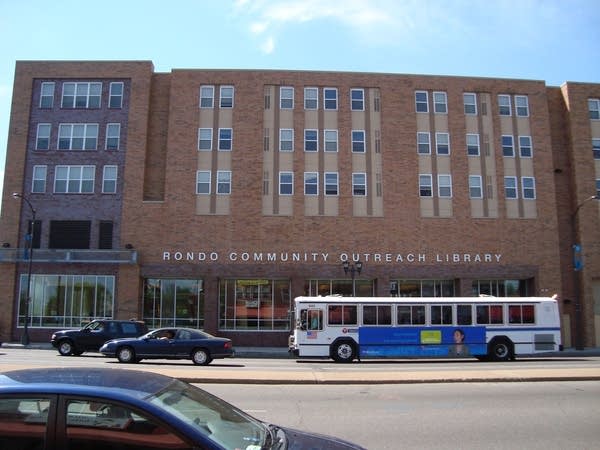MN lawmakers hear plan to reconnect historic Black neighborhood

The Rondo Community Outreach Library at the corner of University and Dale, sits near what used to be the center of the old Rondo neighborhood in St. Paul.
Melanie Sommer | MPR News 2008
Go Deeper.
Create an account or log in to save stories.
Like this?
Thanks for liking this story! We have added it to a list of your favorite stories.


